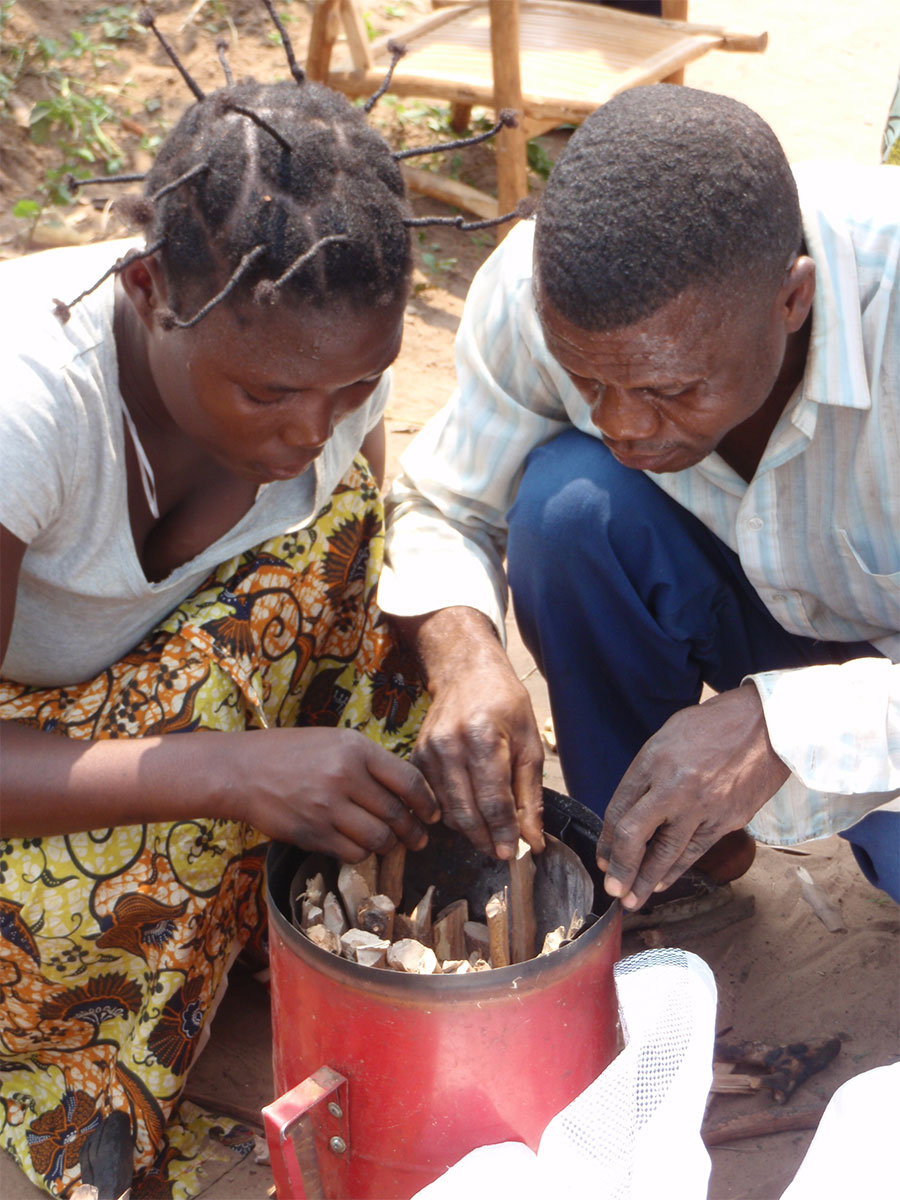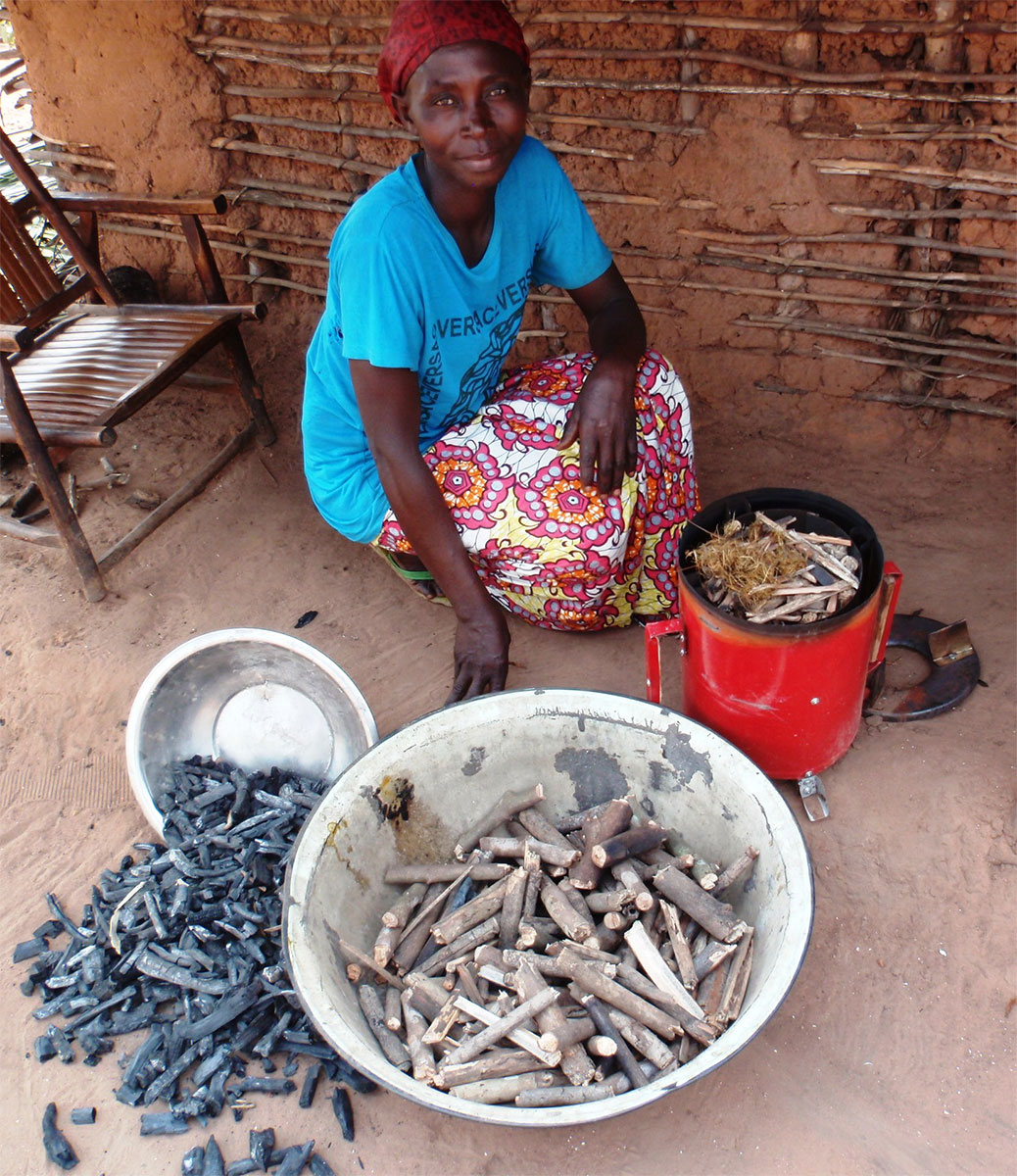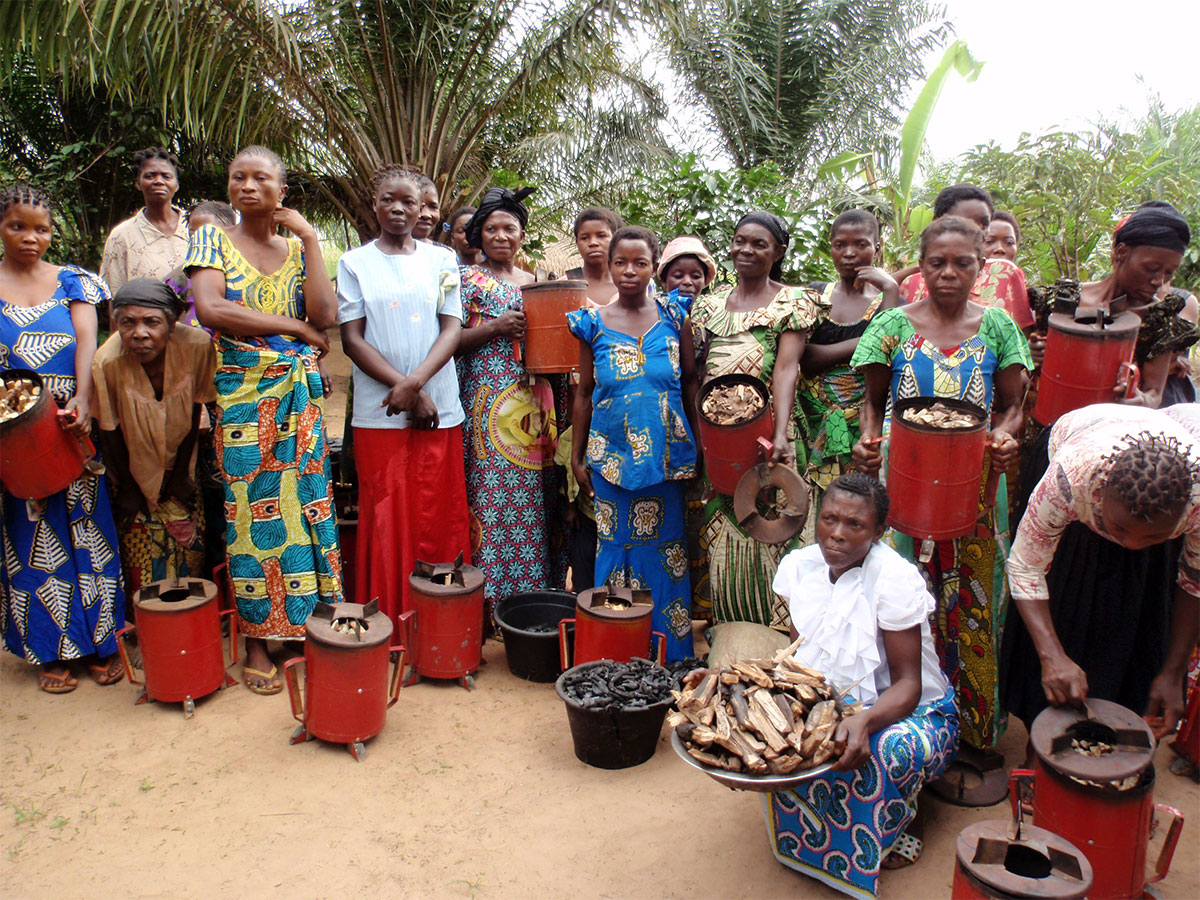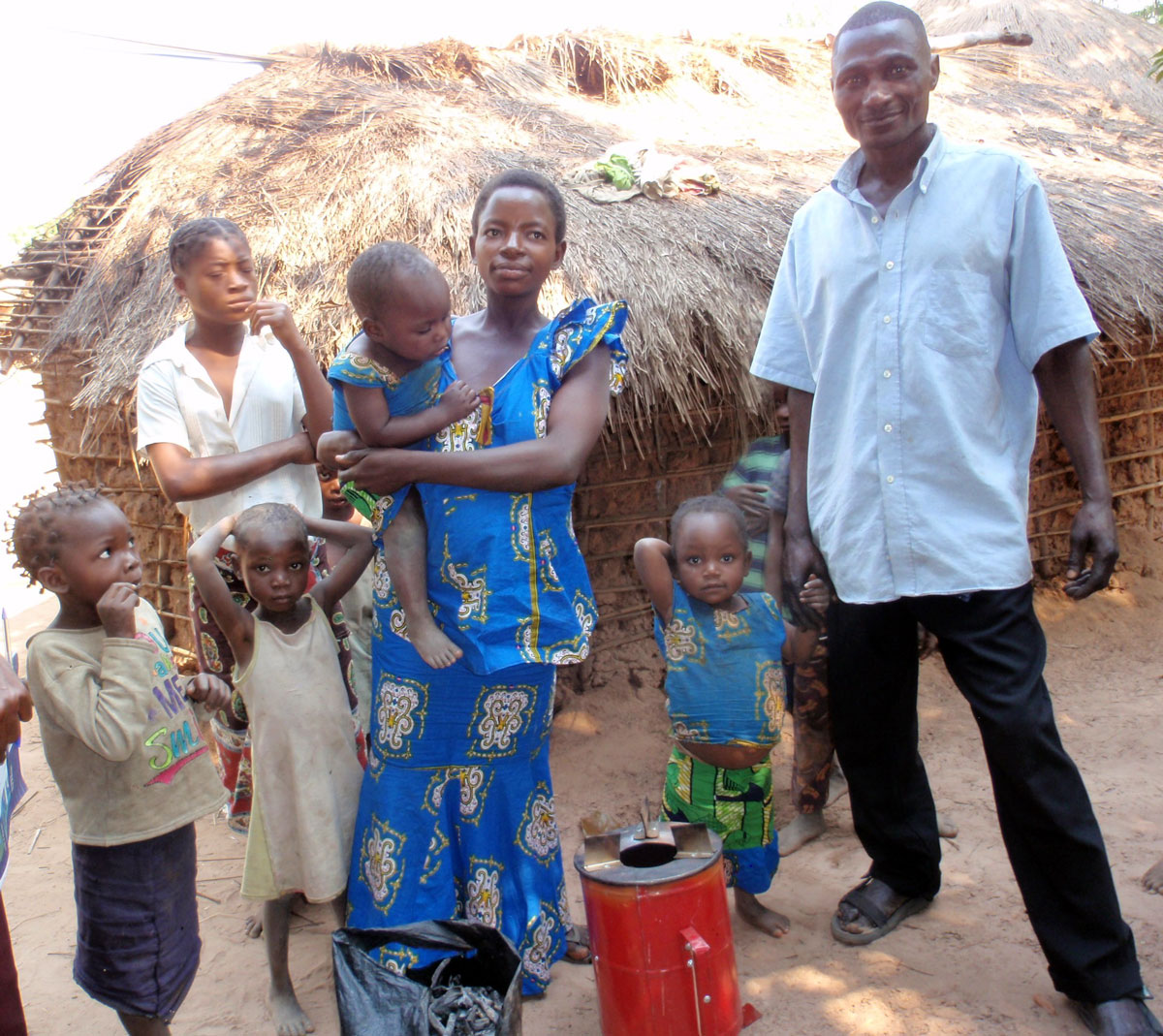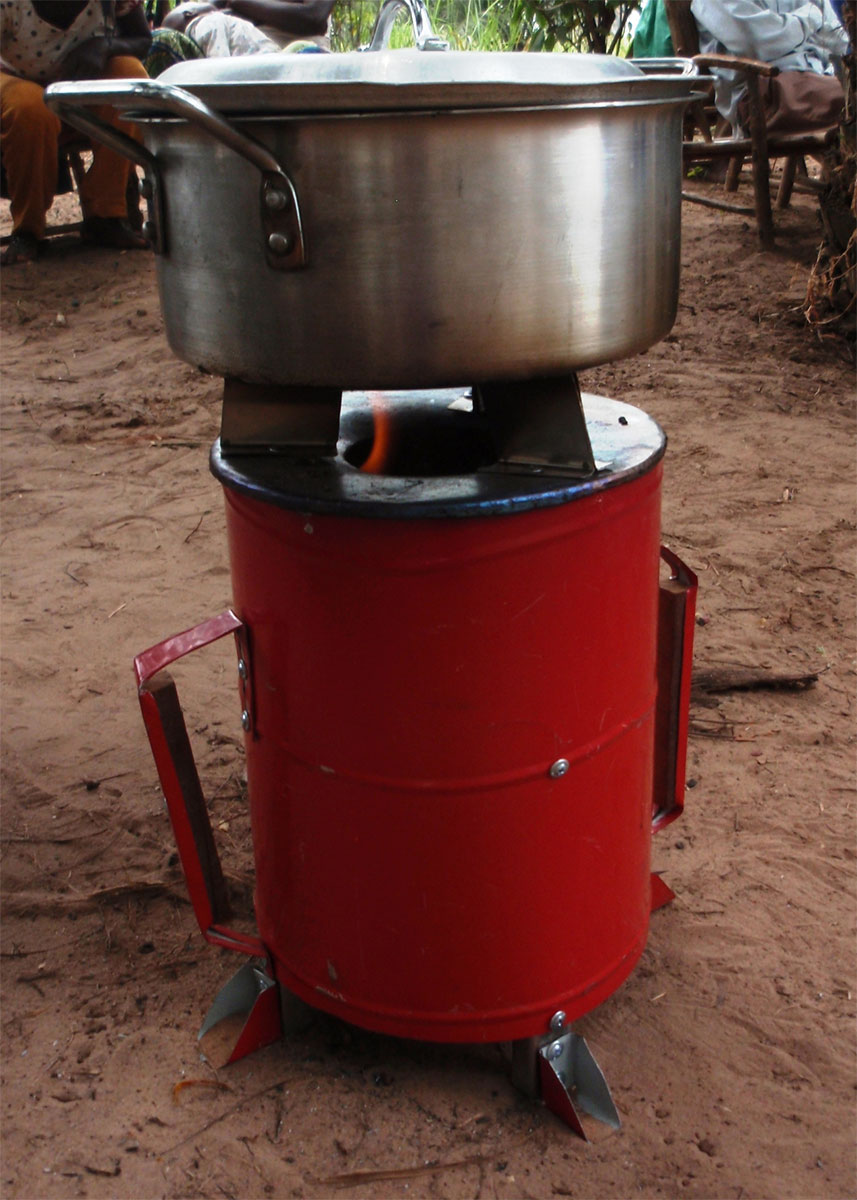A letter from Inge Sthreshley serving in the Democratic Republic of the Congo
December 7, 2016
Write to Larry Sthreshley
Write to Inge Sthreshley
Individuals: Give online to E200412 for Larry and Inge Sthreshley’s sending and support
Congregations: Give to D505045 for Larry and Inge Sthreshley’s sending and support
Churches are asked to send donations through your congregation’s normal receiving site (this is usually your presbytery).
Dear Friends,
For many of you winter weather has set in and you are enjoying warm cozy fires. Here in tropical Congo, fires are a part of everyday life—all year round. Most of the population does not have access to electricity; 87 percent of households use wood or charcoal for cooking. In the rural areas women collect wood when they go out to their fields and use it to cook their meals on three-stone fires. Men make charcoal from felled trees. It is their “cash crop” and is primarily sold to the urban areas. In places that Larry and I remember being forested as children, the trees have all been cut down and sold off for charcoal. And 85 percent of the thermal energy in that wood has been lost in the process of making the charcoal. In Congo you don’t have to go far to smell smoke. Between the cook fires and charcoal production, this country goes up in smoke every day—literally.
In addition to the toll on the environment from the deforestation, the smoke from the cook fires takes a toll on people’s health, particularly for women and children who are around the fires daily. The problem is even more exacerbated when the cooking is done inside the home, which is frequent. The smoke is a contributing factor to developing respiratory diseases such as pneumonia. Pneumonia is responsible for 19 percent of the deaths in children under 5 years, outranking malaria and diarrhea as the top contributor to child mortality.
So, of all the things I have done in Congo as a missionary, I am most excited about the work I am currently doing now with clean cook stoves. The stove we have been working on is a gasifier stove. It is loaded with small pieces of wood that burn in a low-oxygen environment, so essentially the gases in the wood are being burned and there is very little smoke once the fire gets going. The end product is charcoal or biochar which can then be used either to cook another meal or used as a soil amendment in fields and gardens.This spring we gave a stove to every household in the village of Mpoko in the Kasai Province and came back two months later to evaluate how well they were adopted. I was singing hallelujah when our study showed that every household that received a stove was using it to cook with every day. The Mpoko women love this stove!
The women appreciate the stove because they don’t get smoke in their eyes when they cook. It’s clean. There is no ash to clean up afterwards and no ash gets in their food. The food doesn’t taste like smoke. What they really like is that once the fire gets going, the fire and temperature are stable. They can put something on to cook and go do something else. They don’t have to stick around to tend the fire. They can cook inside with it if it rains and not smoke up the house. They like that it uses half the amount of wood and they don’t have to collect and carry so much wood from the fields.
May the God of hope fill you with all joy and peace in believing, so that by the power of the Holy Spirit you may abound in hope. Romans 15:13
They all reported that they and their children have less coughs and colds since they started using the stove. A real plus is that afterwards they have charcoal. Many women were selling the charcoal and earning some extra income. What I found interesting was that several said their husbands now helped out with chopping the wood and loading the stove and would help them cook, as they could cook indoors and no one would mock them for helping their wives. The stove is also very versatile. It can be filled with dried corncobs for a short burn to make coffee or filled with good hard wood and dried palm nuts for a long three-hour burn to cook beans.
We are now in a pilot phase for production and sales. In January we will evaluate our progress and hope to expand sales to other health zones. I’m very excited about this stove and the potential it has to make life better on so many fronts for women in rural Congo. But at the same time, my heart is also heavy. A friend from the Kasai recently wrote “For your information, the security situation here is not good. People are being killed everywhere by the military at random. There is no way to work. We are going through a deplorable, critical time. People can’t sell their goods in peace. Prayers are needed for the Congolese people and the larger Kasai.” Presidential elections were supposed to have taken place this November. They have been delayed until 2018. There is a lot of frustration and anger over the lack of respect for the constitution, the political process, and human rights. Congo is entering a precarious period.
Thank you for your prayers and financial support, which enable us to work here in Congo. Through your prayers and support, you touch many lives in Congo. We ask for your continued support and please pray for a peaceful resolution to the political impasse in the Congo. May the Prince of Peace reign in all our hearts.
Inge Sthreshley
![]() You may freely reuse and distribute this article in its entirety for non-commercial purposes in any medium. Please include author attribution, photography credits, and a link to the original article. This work is licensed under a Creative Commons Attribution-NonCommercial-NoDeratives 4.0 International License.
You may freely reuse and distribute this article in its entirety for non-commercial purposes in any medium. Please include author attribution, photography credits, and a link to the original article. This work is licensed under a Creative Commons Attribution-NonCommercial-NoDeratives 4.0 International License.
